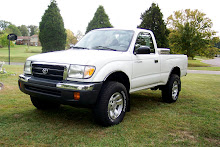Synthetic Oil or Not
Synthetics are really just natural oil refined to a much higher degree, with more complex additive packages for improving performance in both everyday and extreme conditions.
Many sports cars come filled with synthetic to offer the best possible protection. Ron Sullivan, Pennzoil's technology manager, broke things down for us. "For most applications, stick with the manufacturer's recommended oil. But if you want to better protect your engine over the long term, especially against extreme abuse like towing or constant stop-and-go traffic, synthetic might be for you." According to Sullivan, a high-quality synthetic flows better at all temperatures, which makes cranking easier in the cold and gets lubrication to critical components faster. It also resists high heat much better, something very critical in the latest turbocharged engines. "When you stop these engines, the oil has to resist being baked by the heat in the turbo's oil bearing," Sullivan says, "And synthetics are better at that." These are bold claims and may be worth considering when choosing oil, but we can't remember the last time an engine failed on conventional oil, so going synthetic when you don't have to may be a waste of money. If you abuse your engine, consider synthetics; otherwise follow the manufacturer's suggestion and use what the manufacture recommends.
Synthetics are really just natural oil refined to a much higher degree, with more complex additive packages for improving performance in both everyday and extreme conditions.
Many sports cars come filled with synthetic to offer the best possible protection. Ron Sullivan, Pennzoil's technology manager, broke things down for us. "For most applications, stick with the manufacturer's recommended oil. But if you want to better protect your engine over the long term, especially against extreme abuse like towing or constant stop-and-go traffic, synthetic might be for you." According to Sullivan, a high-quality synthetic flows better at all temperatures, which makes cranking easier in the cold and gets lubrication to critical components faster. It also resists high heat much better, something very critical in the latest turbocharged engines. "When you stop these engines, the oil has to resist being baked by the heat in the turbo's oil bearing," Sullivan says, "And synthetics are better at that." These are bold claims and may be worth considering when choosing oil, but we can't remember the last time an engine failed on conventional oil, so going synthetic when you don't have to may be a waste of money. If you abuse your engine, consider synthetics; otherwise follow the manufacturer's suggestion and use what the manufacture recommends.


No comments:
Post a Comment
Note: Only a member of this blog may post a comment.